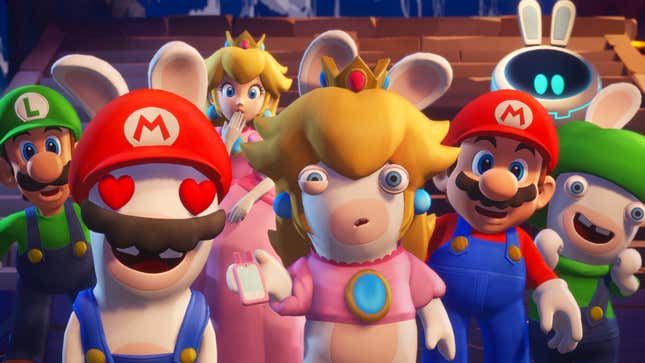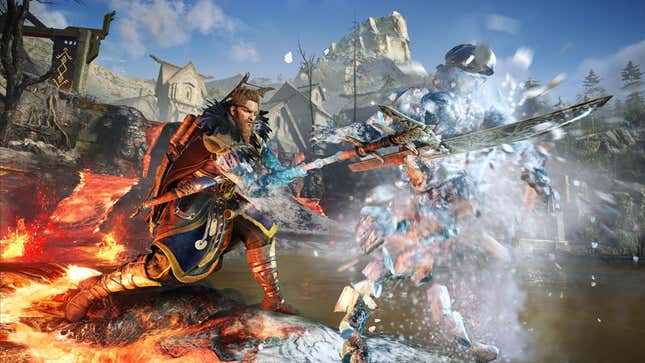
With three massive game industry acquisitions this year already, everyone’s wondering what will happen to the few big publishers and studios left. Chief among those question marks is Ubisoft, the Assassin’s Creed maker currently struggling to make new hits. Amidst delays and employee frustration, analysts grilled the French publisher during an earnings call today over why it hasn’t already been bought.
Unsurprisingly, acquisitions were on everyone’s mind following major deals to buy Zynga, Bungie, and Activision Blizzard announced last month. Matthew Walker of Credit Suisse put a particularly pointed version of the question to CEO Yves Guillemot and CFO Frédérick Duguet.
“In a consolidating industry I guess I’m just wondering why you guys haven’t had an offer given the embedded value in your IP,” Walker asked. “Is that because in order to be acquired you have to signal that you want to be acquired and that you haven’t done that?”
Here was the response:
Duguet: We will not speculate on why people would not have made any offer. What is interesting…
Guillemot [Interrupting]: If any offer were made, actually…
Duguet: Absolutely, so I can’t comment on that any further. What we can say is that as we mention we have high value assets, we have the scale to remain independent and create very meaningful value in the future because we have scale in terms of [inaudible] workforce, as well as engineering, technology, IPs, and strongly engaged communities. That’s why we are able to serve so many platforms today with such high quality content and with good favorable terms for publishers like Ubisoft now of course we won’t speculate any more on any potential interest in buying Ubisoft.

It’s a confusing exchange. Duguet seems to confirm that Ubisoft hasn’t currently received any offers, before being cut off by his boss who then opens the door back up to the possibility that companies have expressed interest in buying the publisher.
“We won’t comment if there have been any offers,” a spokesperson told Kotaku in an email. “With any decision it’s always based in the interest of our stakeholders including employees, players and shareholders. Ubisoft can remain independent. We have the talents, the industrial and the financial scale and a large portfolio of powerful IPs. If there were an offer it would of course be reviewed by the Board of Directors and with keeping in the interest of all stakeholders.”
It’s a very different response than Guillemot had just a few years ago when French media conglomerate Vivendi was attempting a hostile takeover of the family business he co-founded decades ago. During that multi-year saga, Guillemot went on the offensive to rally employee and public support, as well as outside investors, to try and stave off a move he argued would deal a huge blow to creativity in the video game industry. Guillemot ultimately won that fight in part thanks to a limited investment by Tencent.
Guillemot seems much more open to the possibility of a buyout now, and today’s earnings report almost reads like a sales pitch. Ubisoft had a lot to say about its “powerful portfolio of assets” and having the “richest pipeline of games” in the company’s history, vague gestures toward the future in a document usually promoting last quarter’s success.
It’s not clear who might potentially be interested in buying Ubisoft. Rainbow Six Extraction and eventually Ubisoft+ coming to Game Pass ignited speculation about Microsoft. Tencent, meanwhile, already has a 5% stake in the company with the option to increase it starting next month.Whoever it might be could potentially get it at a bargain. Ubisoft’s market cap is $6 billion and its stock is worth half of what it was a year ago. At the same time, Ubisoft is roughly twice the size of Activision Blizzard in terms of body count with nearly 20,000 employees spread out across the globe.
Whatever ends up happening, many of the actual workers would like to have a say in it. Following a widespread reckoning with workplace misconduct that started in 2020, the ABetterUbisoft group of 1,000 current and former developers signed a letter asking for more transparency and accountability. They say Guillemot and others still refuse to engage with their demands over 200 days later.